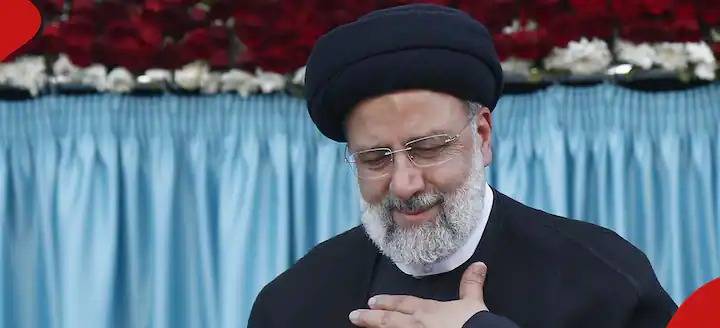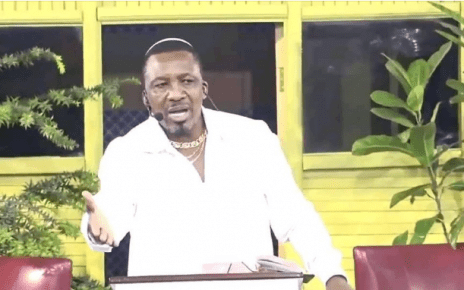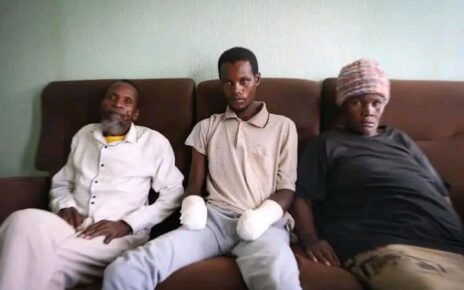Ebrahim Raisi (December 14, 1960 – May 19, 2024) served as the president of Iran from 2021 until his untimely death in a helicopter crash near Uzi, Iran. Known as the “Butcher of Tehran” for his involvement in the mass execution of political prisoners in 1988, Raisi was an unpopular figure who was propelled to power by the clerical establishment as a potential successor to Iran’s Supreme Leader, Ali Khamenei. Trusted by hard-liners in both the clerical and security sectors, Raisi’s career symbolized the corruption within the Islamic Republic and the hardships faced by the Iranian populace. His presidency saw significant unrest, particularly following the death of Jina Mahsa Amini in 2022, which sparked widespread “Woman, Life, Freedom” protests.
Early Life and Education
Raisi was born and raised in Mashhad, a significant religious center for the Twelver Shi’ah due to the burial site of the eighth imam, Ali al-Ridha. His birth coincided with Iran’s land reform (1960-63) and the White Revolution development program (1963-79), periods of substantial socio-economic change. Despite the country’s rapid modernization and urbanization, the clerical establishment, particularly in Mashhad, felt disenfranchised by the shah’s reforms.
Coming from a clerical family, Raisi pursued a religious education, attending seminary in Qom in 1975. Qom was the intellectual hub of Shi’i Islam, and many seminarians there were drawn to the revolutionary ideals of Ruhollah Khomeini, who advocated for velāyat-e faqīh (guardianship of the jurist) to ensure clerical oversight of government policies. Raisi actively participated in the 1978-79 events that led to the shah’s exile and the establishment of an Islamic government based on Khomeini’s vision.
Career as Prosecutor for the Islamic Republic
Following the 1979 Iranian Revolution, the new Islamic Republic faced numerous challenges, including opposition from Western-educated loyalists, secular left-wing dissidents, and the Iran-Iraq War. Raisi devoted his career to defending the regime against internal threats. He began working in the prosecutor’s office in Masjed Soleyman and later served in various jurisdictions, including Karaj, Hamadan city, and Hamadan province. In 1985, he became deputy prosecutor in Tehran. In 1988, Khomeini appointed Raisi to a committee responsible for executing thousands of political prisoners accused of collaborating with Iraq.
Under Ali Khamenei’s leadership starting in 1989, Raisi rose through the ranks of Iran’s judiciary. He served as Tehran’s prosecutor (1989-94) and held significant positions such as head of the General Inspection Organization (1994-2004) and prosecutor general of the Special Court for the Clergy (2012-21). As first deputy to the chief justice (2004-14), Raisi played a key role in suppressing dissidents following the 2009 presidential election unrest. He was also a member of the Assembly of Experts (2007-24), responsible for selecting the Supreme Leader if the position became vacant.
In 2016, Khamenei appointed Raisi as the custodian of the shrine of Ali al-Ridha in Mashhad, giving him control over Iran’s largest charitable trust, which held billions in assets. This role increased Raisi’s influence among the clerical and business elite.
Political Career and Presidency
Raisi cultivated an image as a government critic tough on corruption. He ran against incumbent Hassan Rouhani in the 2017 presidential election, criticizing Rouhani’s nuclear agreement (JCPOA) and its economic impact. Although Rouhani won, Raisi’s significant share of the vote demonstrated his populist appeal. The U.S. withdrawal from the JCPOA in 2018 and the reimposition of sanctions left many Iranians feeling vindicated by Raisi’s stance.
Appointed head of the judiciary in 2019, Raisi pursued selective corruption cases against officials and businessmen. His tenure was marked by heightened tensions with the U.S. and the tragic downing of Ukraine International Airlines Flight 752 by the IRGC. The investigation into the incident failed to hold high-ranking officials accountable.
Raisi won the 2021 presidential election with significant support after key challengers were disqualified. His presidency focused more on regime security than economic relief amidst international sanctions and the COVID-19 pandemic. His initial budget increased defense funding while maintaining domestic austerity. Despite efforts to improve vaccination rates, his administration did little to address economic woes, including a severe water shortage and rising inflation. Raisi prioritized strengthening ties with China and regional neighbors over renewing the JCPOA, and by the time a new deal was within reach, geopolitical developments complicated its finalization.
Raisi’s administration intensified repression, including increased surveillance, censorship, and enforcement of strict dress codes. Executions spiked, disproportionately affecting women and minorities. Economic conditions worsened, exacerbated by Russia’s invasion of Ukraine, leading to a sudden cut in food subsidies and a surge in food prices.
Protests and Final Days
Widespread protests erupted in May 2022 due to rising food prices. These were overshadowed by massive demonstrations in September following the death of Jina Mahsa Amini in custody for “improper” dress. Her death symbolized broader grievances, including women’s subjugation and government indifference. Women led the protests, with the slogan “Woman, Life, Freedom” gaining prominence. Raisi blamed foreign actors for the unrest.
During the 2023 Israel-Hamas War, Raisi’s confrontational stance towards Israel intensified, and regional allies increased attacks on Israel. After Israel killed IRGC officers in Damascus in April 2024, Iran retaliated by firing drones and missiles into Israeli airspace. However, when Israel struck a military complex in Iran, Raisi remained silent as officials claimed the strikes were intercepted.
In May 2024, Raisi was returning from inaugurating new dams on the Iran-Azerbaijan border when his helicopter crashed in bad weather. Rescuers found no survivors, marking a sudden end to his controversial presidency.



